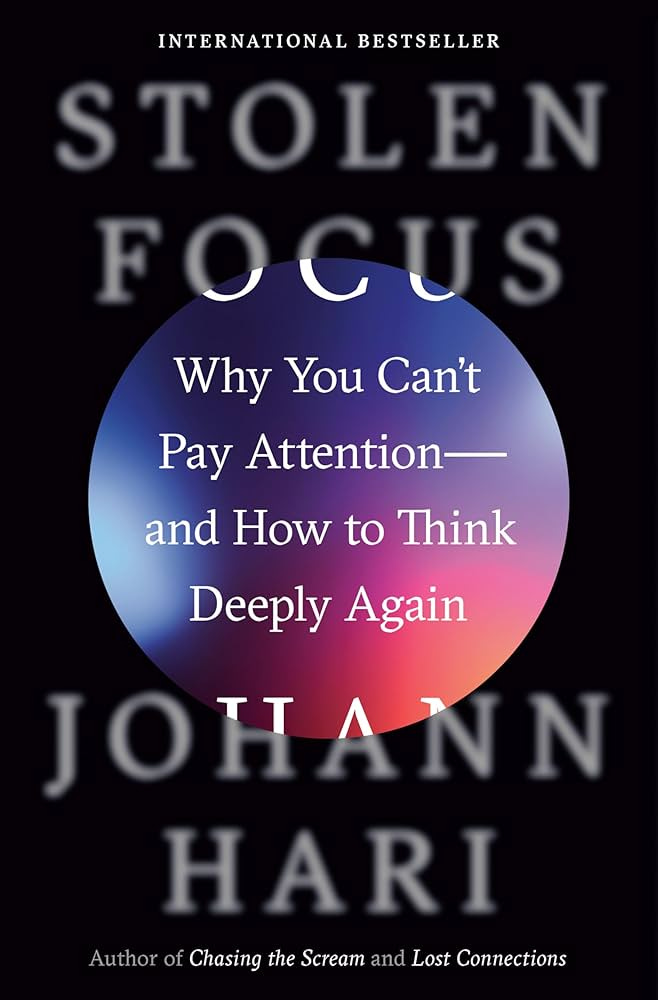Your attention isn’t broken — it’s being stolen. Hari shows us who’s behind the heist, and how to take it back.
1. The Great Attention Collapse
We’re all distracted. But why? Hari starts with the big picture: our attention spans are shrinking, not just because of tech, but because of the entire system we live in.
Key points:
Attention spans are measurably shorter — even Twitter topics fade faster than before.
The internet didn’t start the decline, but it turbocharged it.
We live in the age of “infinite input,” yet our brains are still running on Stone Age firmware.
2. Apps Designed to Hijack Attention
Social media isn’t just distracting — it’s engineered to be. Infinite scroll, likes, notifications: these aren’t bugs. They’re features, born in labs that studied how to addict humans.
Key points:
Behavioral psychology turned into code at Stanford’s Persuasive Tech Lab.
Features like infinite scroll were built to keep you hooked.
Time = money in Silicon Valley, and our attention is the currency.
3. Algorithms That Divide, Not Unite
The platforms don’t just distract — they fracture. Algorithms promote outrage because it keeps us engaged (and angry).
Key points:
Controversy drives clicks, clicks drive revenue.
Social media can empower movements — but also fuel division and disinformation.
Even Facebook’s own research admits it: their tech amplifies polarization.
4. Rediscovering Flow
Hari brings in psychologist Mihaly Csikszentmihalyi’s concept of flow — that sweet spot of deep focus and creative immersion. But in a multitasking world, flow is an endangered species.
Key points:
Humans are terrible multitaskers — every switch has a cognitive cost.
Flow requires full presence, intrinsic motivation, and the right level of challenge.
Monotasking is the new superpower.
5. Attention as Activism
Want to reclaim your focus? You’ll need more than digital detox. Hari argues that changing your individual habits is important — but not enough. We need systemic change.
Key points:
Design tech that respects attention, not exploits it.
Silicon Valley insiders like Tristan Harris are pushing for ethical design.
This isn’t just about willpower — it’s about rewiring the system.
6. Tech for Good Is Possible
Hari doesn’t just critique — he explores alternatives. From shorter workweeks to redesigned platforms, change is happening.
Key points:
Companies are experimenting with 4-day workweeks (and it’s working).
France has laws protecting employees’ right to disconnect.
Social platforms could connect users to positive communities — if they chose to.
7. The Case for Hope
Despite the doom, Hari is cautiously optimistic. The attention crisis is real, but not irreversible. We can fight back — if we act collectively.
Key points:
Change is possible — but it has to be both personal and political.
Attention is a human right — and a renewable one.
The first step? Understand the enemies of your focus.
So what?
Stolen Focus is a wake-up call wrapped in research. Hari doesn’t just want you to delete your apps. He wants you to see the bigger picture: your attention isn’t failing you — it’s being monetized. And it’s time to take it back.


